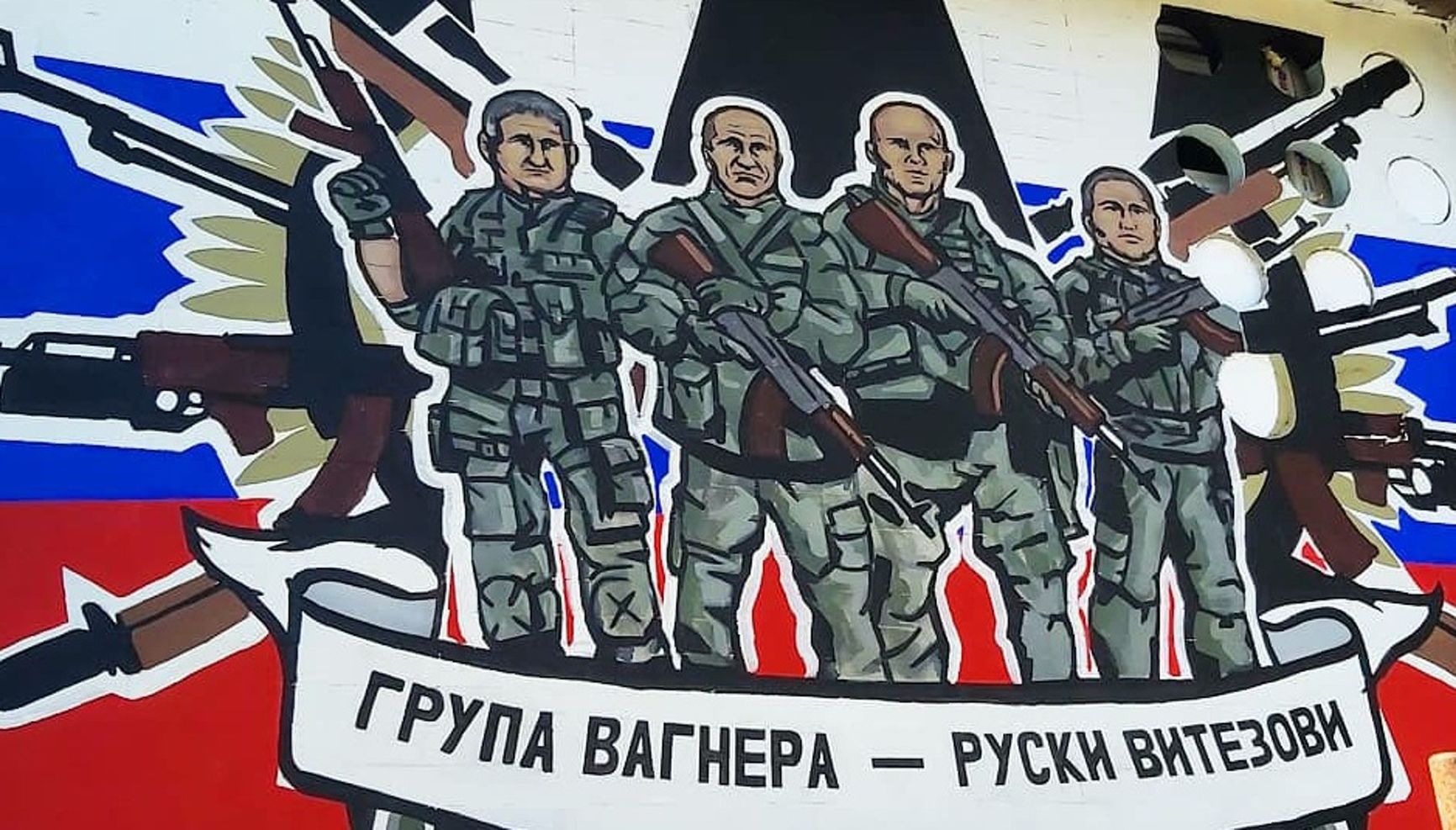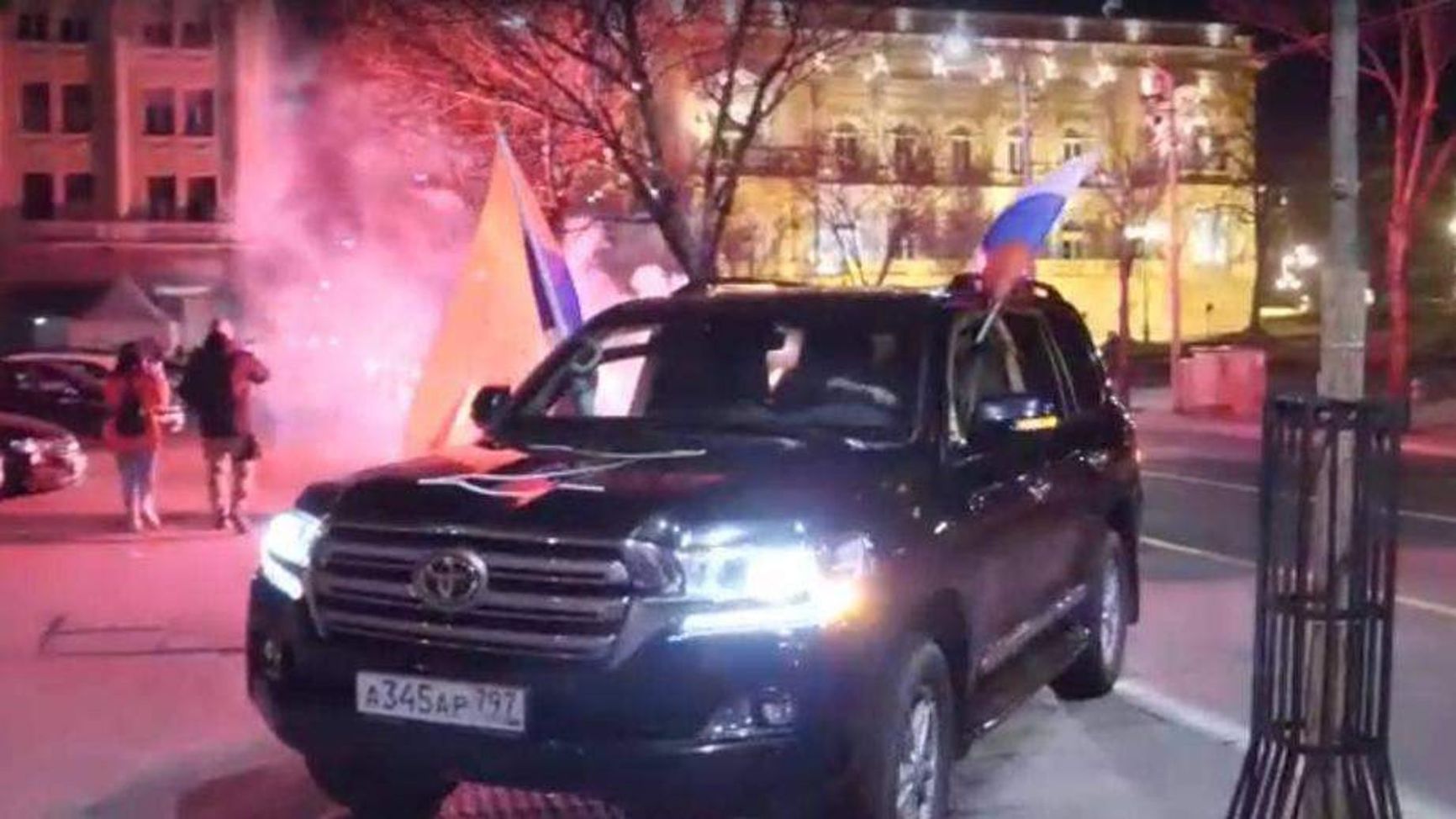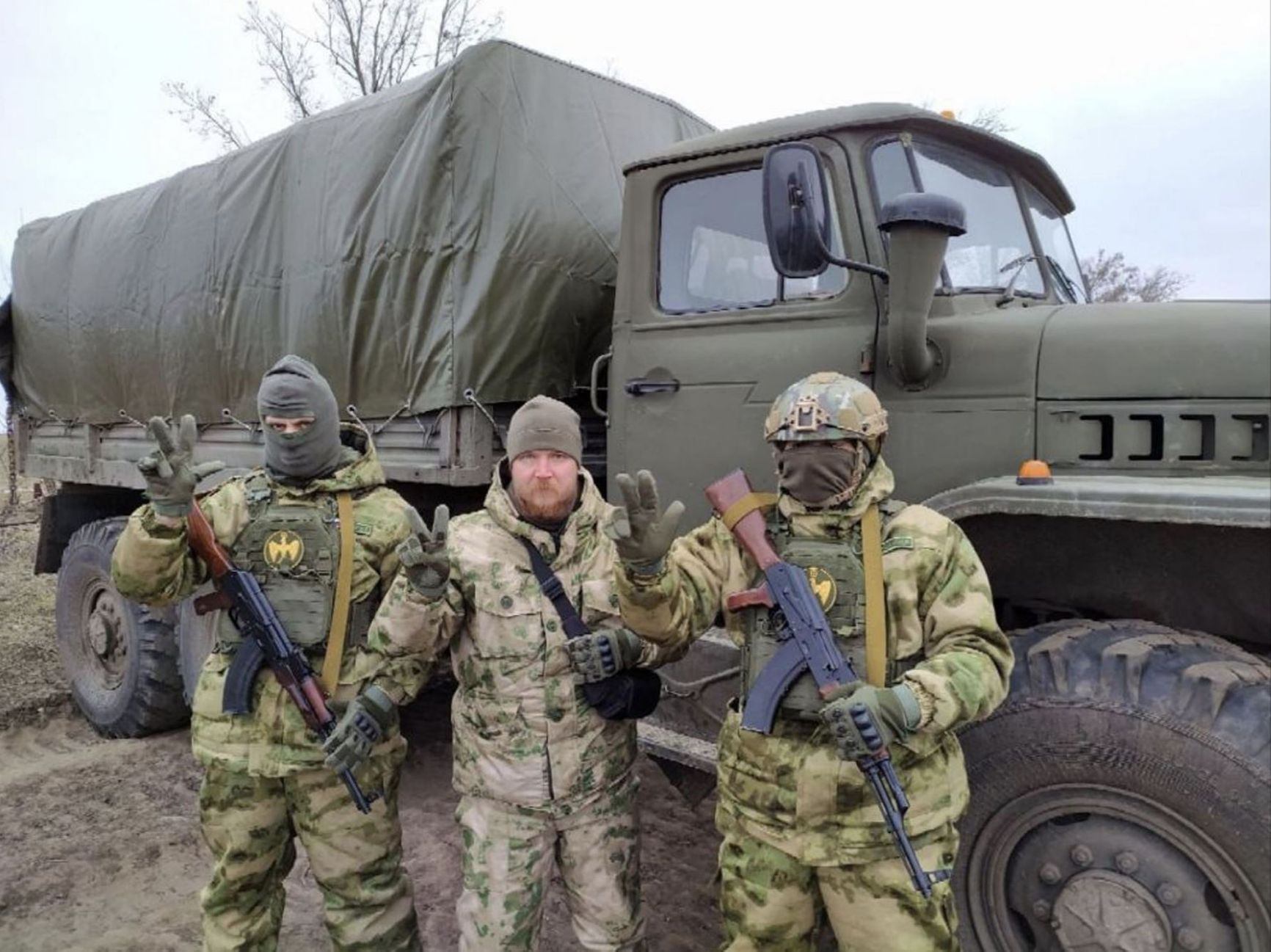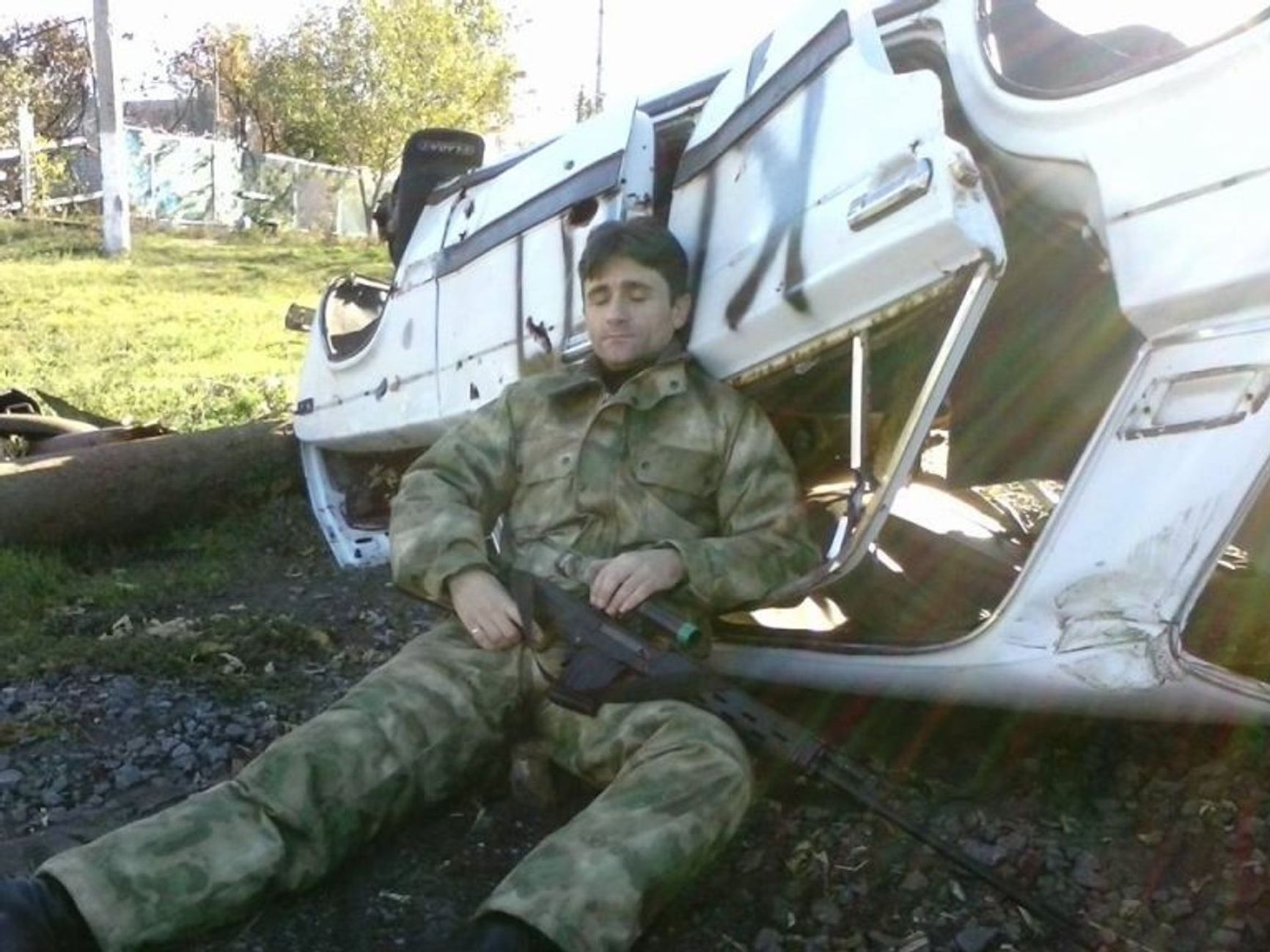

At the start of this year, the Wagner PMC attempted to begin recruiting volunteers from the Balkans for deployment in Ukraine. However, the Serbian authorities swiftly declared the organization undesirable and warned prospective mercenaries of the legal consequences. Despite this, the pro-Kremlin RT television channel, Serbian-language Telegram channels with thousands of followers, and fringe radical groups are actively promoting Wagner's image in the region. Some of the initial Serbian mercenaries have called on their countrymen to join the front lines without delay. Despite this fervent propaganda, there has been no significant surge in fighters, with only videos of fake “Serbian fighters with no combat experience” surfacing.
Content
Russia's influence hub
Prigozhin's failure
Radical “artists”
“Sava” and “Dunai”
Serbia’s hopes
Russia's influence hub
Early in 2023, the Balkans once again emerged as a potential hub for mercenary activity, following the publication of a “lucrative offer” from PMC Wagner by RT Balkan, the pro-Kremlin television channel under international sanctions for propaganda and disinformation. The offer promised payments of 240,000 rubles (around 3,140 euros) per month, with bonuses of up to one million rubles (13,000 euros) for exceptional performance. In the event of death, families would receive five million rubles (approximately 65,700 euros), with Wagner taking care of all funeral and transportation expenses. This level of compensation, particularly in the face of high unemployment in the Balkans, proves tempting for some.
However, participating in foreign conflicts carries a risk of up to 10 years in prison for Serbian citizens, a fact well known to the staff of RT Balkan. Despite this, they felt it necessary to publicize the conditions of cooperation with an organization of questionable legality, which is also under sanctions from the US and EU. In addition to its website, which went live in November, RT Balkan has a strong online presence through its Telegram, Facebook, Instagram, Twitter, TikTok, and YouTube channels. This allows the project to reach audiences not just in Serbia but also in Montenegro, Croatia, Bosnia and Herzegovina, and other countries with a Yugoslav diaspora. Although the initial advertisement was later corrected, it quickly went viral and detailed quotes can still be found in various media outlets and on social media platforms in the region.
Serbia's reputation as a hub for Russian influence and pro-Kremlin sympathies in the region has solidified over the past year of the Ukrainian conflict. The country is one of the few where rallies in support of Kremlin policies have taken place and where graffiti featuring Vladimir Putin and the Z and V symbols are frequently seen.
Serbia's reputation as a hub for Russian influence and pro-Kremlin sympathies in the region has solidified over the past year of the Ukrainian conflict
Serbian President Aleksandar Vucic has generally allowed pro-Russian activities and disinformation to flourish in the Serbian media that is loyal to the government. These media outlets actively propagate the Kremlin's key narratives regarding the conflict in the South Caucasus region, spread anti-Western propaganda, and quote from programs like “Solovyov Live”. Tabloids close to the Serbian authorities published a report after the start of the war saying that “Ukraine attacked Russia,” a fake that is still available to readers. Despite this, when the scandal involving the recruitment of Wagner PMC in Serbia erupted (causing concern from the United States), Vucic swiftly took action, publicly condemning the advertisement of a paramilitary group and reminding potential recruits of their criminal liability.
“What are you doing? Why are you calling on someone from Serbia when you know it is against our laws?” Vucic exclaimed on one of the state-controlled TV channels.
Prigozhin's failure
Recently, new photos of “Serbian fighters” have appeared online, but their authenticity cannot be verified. Typically, their faces are concealed, and Russian media rarely provide their readers with details of the exploits of the “Slavic brothers”. Belgrade analysts who were polled by The Insider estimate Wagner's chances of attracting new mercenaries in the Balkans as low. Some believe it could be a few dozen potential fighters, while others believe it could be hundreds, but they all agree that it won't have a significant impact on the units' combat efficiency.
Former volunteers are not quick to predict the scale of the influx of new Serbian fighters to the Donbass. “I wouldn't speculate on specific numbers. It's not about whether it will be hundreds or thousands of people, but the fact that the conflict in Ukraine has already escalated to the scale of World War II operations and threatens to engulf the entire planet,” says Radomir Počuča, a former spokesman for the Serbian Interior Ministry's anti-terrorist unit who received a suspended sentence for participating in combat operations in eastern Ukraine, in an interview with The Insider. He doubts that Wagner has a presence in Serbia:
“It's a combat unit and doesn't require complicated logistics. Serbia has become an intelligence platform for various services because of its geopolitical significance. Of course, there are also representatives of Russian structures working here, but I don't think there are any “Wagnerites.”“
Počuča, who lost a friend in the Wagner ranks in Syria, has not heard of any of his acquaintances from the Donbass joining Prigozhin's forces in eastern Ukraine.
Russian propaganda often leverages the image of “Serbian brothers” and Serbia as a historical ally of Russia, drawing comparisons between Balkan disputes and the situation around Ukraine. This is evident in the work of pro-Wagner Serbian-language Telegram channels and other internet platforms, such as “Slovenski Medved”, which has over five thousand members, regularly providing detailed information about the PMC's combat successes in Ukraine and publishing propaganda messages like “the future of Kosovo depends on a Russian victory” or “Montenegro is Serbia, Ukraine is Russia.”
Radical “artists”
The Balkan regions are witnessing a growing trend in the promotion of Wagner's positive image, with the small extremist groups, Popular Patrol, and Serbian Right at the forefront of the movement. These groups have gained notoriety for their graffiti in Belgrade showing support for Wagner. One of the murals, for instance, was inspired by a photo from the Heroes of the Fatherland Day in the Kremlin, depicting Vladimir Putin surrounded by Wagnerites Utkin, Troshev, Bogatov, and Kuznetsov.

Mural of the Serbian Right
The Serbian Right's leader, Miša Vacić, has been the center of numerous scandals, including a controversial salute reminiscent of fascist gestures at the Italian Right meeting in 2021. He also drew attention for his presidential nomination bid when he arrived at the Serbian Central Election Committee in a car with Russian license plates, flags of Serbia and Russia, and the letter Z symbol. Despite his poor election results, 0.9% of the vote, he has remained valuable to the Kremlin, as evidenced by his being invited to observe the September referendums on the independence of the Ukrainian territories occupied by Russia.

Miša Vacić brought signatures for his nomination in a car with Russian license plates and flag and the letter Z
Vacic observed the voting in a refugee camp in Volgograd, a city he had probably never heard of before, since he twice mispronounced it as Volvograd. Incidentally, the Serbian authorities themselves did not recognize the results of these referendums or the 2014 annexation of Crimea, and they also condemned the invasion of Ukraine in 2022.
People's Patrol, led by Damjan Knežević, is known for its nationalist, anti-immigrant, and anti-NATO sentiments and is also responsible for painting Wagner graffiti. In December, Knežević visited the Wagner Center in St. Petersburg with the head of the Russian-Serbian organization, Orly, Alexander Lysov, and Zoran Lekic, Orly's representative in Serbia. He gifted a Serbian flag that had been used in SVO support rallies in Belgrade. Lysov, who claims to be a resident of the Wagner Center, stated that he and Knežević had been working closely together for several years.
“Sava” and “Dunai”
Recently, video clips featuring two “volunteers with no combat experience” - Sava and Dunai - were released to attract more mercenaries to the frontlines of Novorossia and create the illusion of Slavic unity. The men in uniform, who wear balaclavas, speak briefly through an interpreter known as “Viking,” who does not speak Serbian. They report that they are happy with the conditions in the Sudoplatov Battalion, which was formed in the fall in the Zaporizhzhia region, and came at the call of their hearts. If not for the threat of criminal prosecution in Serbia, they believe more volunteers would have joined.
“Sava” and “Danube” use their words sparsely, making it challenging to determine if they are actually saying them. Instead, most of their thoughts are communicated through “Viking,” who portrays the Serbs as former “Serbian military police” riflemen. “Viking” asserts that the conflict in Ukraine impacts the liberation of Europe and the future of Kosovo, an Albanian-populated province that declared independence from Serbia in 2008. This perspective is echoed by pro-Wagner channels like “Slovenski Medved,” although “Sava” and “Dunai” do not express these sentiments themselves.

“Sava”, “Danube”, “Viking”
In another story, the characters “Sava” and “Dunai” are more verbose, with distinct vocal nuances. They espouse cliched remarks such as “it's NATO is the one waging war, not Ukraine” and “all the troubles stem from the West and Western political establishment in Kyiv.” Their perspectives are largely conveyed through the character “Viking.” He estimates that hundreds of foreign individuals may be involved in the conflict, with around 15 Serbs, 5-6 Macedonians, and a handful of people from other Slavic nations expressing interest in joining their battalion.
Viking, whose real name is Andrei Rodionov, leads the movement “Russian-Slavic Unification and Revival,” which opposes “Westernized globalism, materialism, and multiculturalism.” The organization aims to unify and revive the indigenous Russian state, revive historical Great Russia, and create a Union Slavic state with Great Russia as the vanguard.
The ambitious organization is registered at Apt. 31, 51 Gorpischenko str. in Sevastopol. Rodionov's background had been in retail antique trade before he became a fighter for the Slavic state.
A shady sniper/journalist
Dejan Beric, the most renowned Serbian mercenary of the first wave, is known for his ambitious plans. He has gained notoriety through his YouTube channel, which boasts 100,000 subscribers, where he frequently calls for war and promotes a positive image of Wagner. Beric claims to have worked on the construction of the Olympic village in Sochi before the 2014 Winter Olympics and then fought in Slavyansk under Strelkov and at Donetsk airport, though these claims lack reliable confirmation. Strelkov denies that Beric ever served under his command. In response Beric has been pouring mud on Strelkov, accusing him of personally ordering him to kill DNR commanders and trying to “poison water with mercury.”

Dejan Beric in Donbass
Dejan Beric's Facebook account
Beric's image is tarnished by conflicts with many first-wave Serbian volunteers and Donbass commanders. He has been called a liar and a greedy individual by those who know him, who claim that he constantly portrays himself as significant but is in reality constantly begging for money, weapons, medicines and other resources. As a matter of fact, he collects money at paypal.me/DekiZN.
Despite his scandalous reputation, Beric was accredited by the Foreign Ministry in 2019 and engaged in a 7-minute dialogue with press secretary Maria Zakharova as a correspondent for Politrussia.com. Behind this patriotic website is Ruslan Ostashko, who is associated with the presidential administration and who, according to Alexei Navalny's investigation, received state contracts worth 100 million rubles. Beric is also associated with RIA FAN, which is affiliated with Wagner founder Yevgeny Prigozhin, and presents himself as an expert on the realities of Donbass.

Maria Zakharova and Dejan Beric
In a recent video, Beric told the Serbian audience that Wagner has its own artillery and aviation and receives everything it needs from the Defense Ministry. He encourages artillerymen with experience in the Serbian army or the UNA (which ceased to exist 30 years ago with the collapse of the SFRY) to come to Donbass.
“If you are an artilleryman and an officer, come join us. You're needed most right now. We don't close our doors to anyone. But if you have a chronic illness, don't come. Or else you will be thrown out,” he explains. Berich urges potential recruits to write to him personally:
“You will be met and taken to a place where the contracts are signed!” He claims that in three months the money for the tickets will be refunded, and in six months Russian citizenship will be granted. “As long as you are at the firing range, the salary is 110,000 rubles ($1,500), and if you are in a combat zone, 220,000 ($3,000). All payments are supported by documents. You get the money and do what you want with it!”
Serbia’s hopes
According to Ukrainian sources, several hundred Serbian mercenaries may have been involved in the conflict in Donbass since 2014. However, the Serbian government has not disclosed any official data on this matter. In recent years, more than 30 Serbian citizens have been brought to trial for their participation in the conflict, but only a few have received substantial sentences, often for short prison terms.
A Belgrade-based expert, who requested anonymity in relation to mercenary activities, told The Insider that Wagner has been recruiting mercenaries from the Balkans since the conflict in Syria. The expert stated:
“The individuals who went to Donbass from 2014-2022, of which there were only around 100-150 in total, are a joke. The Balkans are unlikely to become a hub for mercenary activities. The Serbian government can't legally stop its citizens from traveling to Russia. They simply hope that the mercenaries will either die in Ukraine or not return. Those who traveled abroad as mercenaries have either died or settled somewhere else, while the few that returned have been convicted. Wagner doesn't have a physical presence in Serbia, but its main operations are carried out through several far-right groups. There are few potential mercenaries in the region, and it is likely that the Vucic government will crack down on them as Serbia moves further away from Russia.”